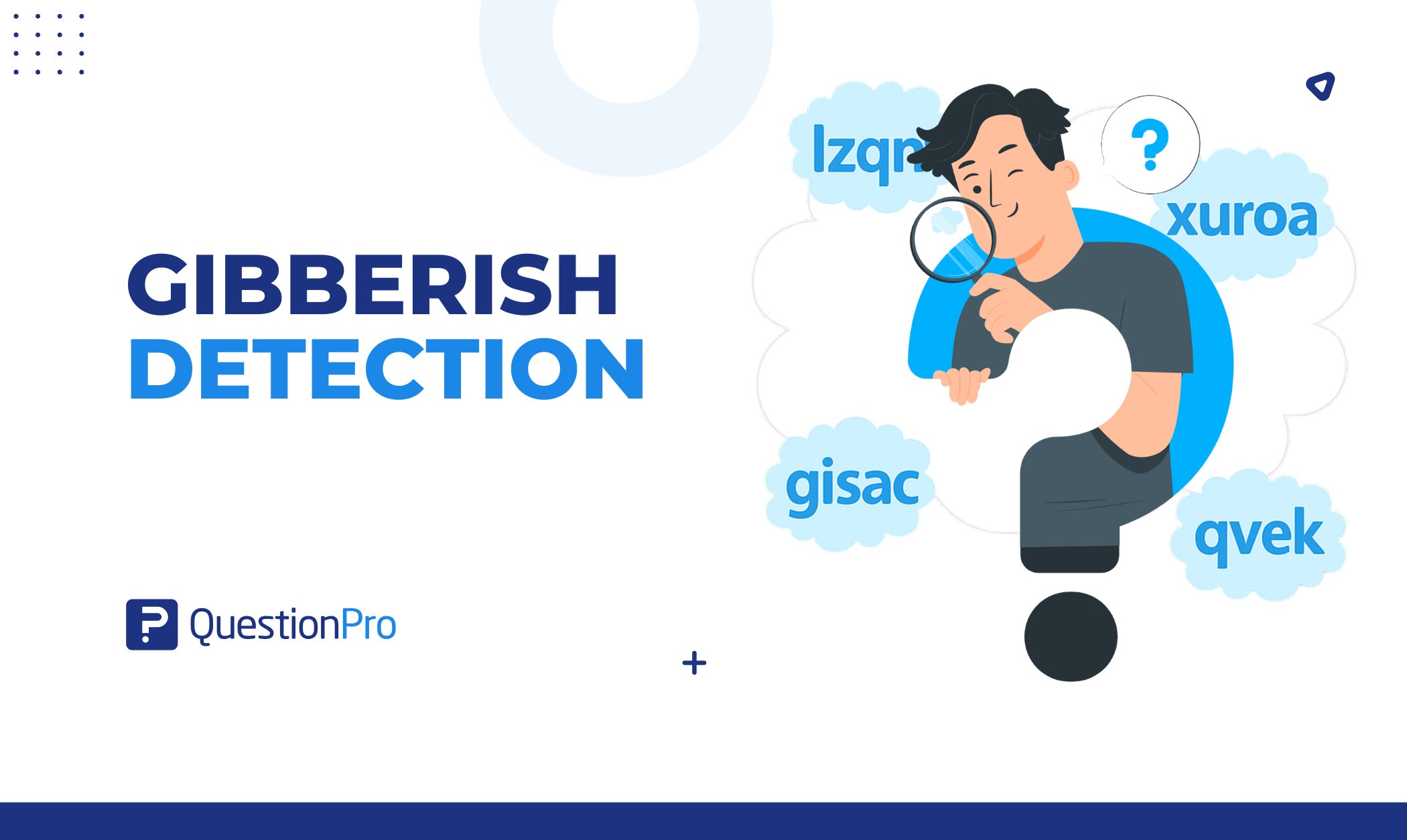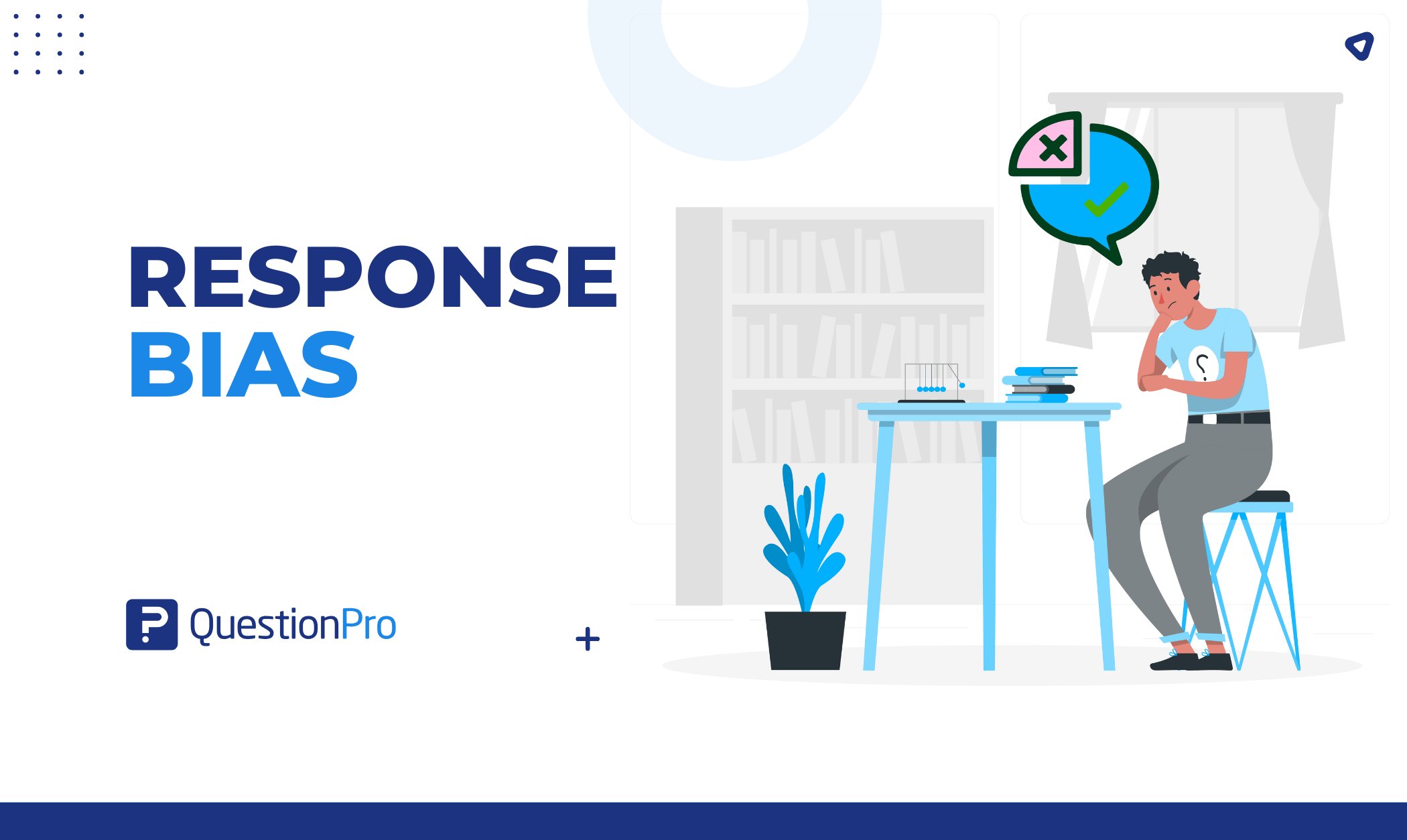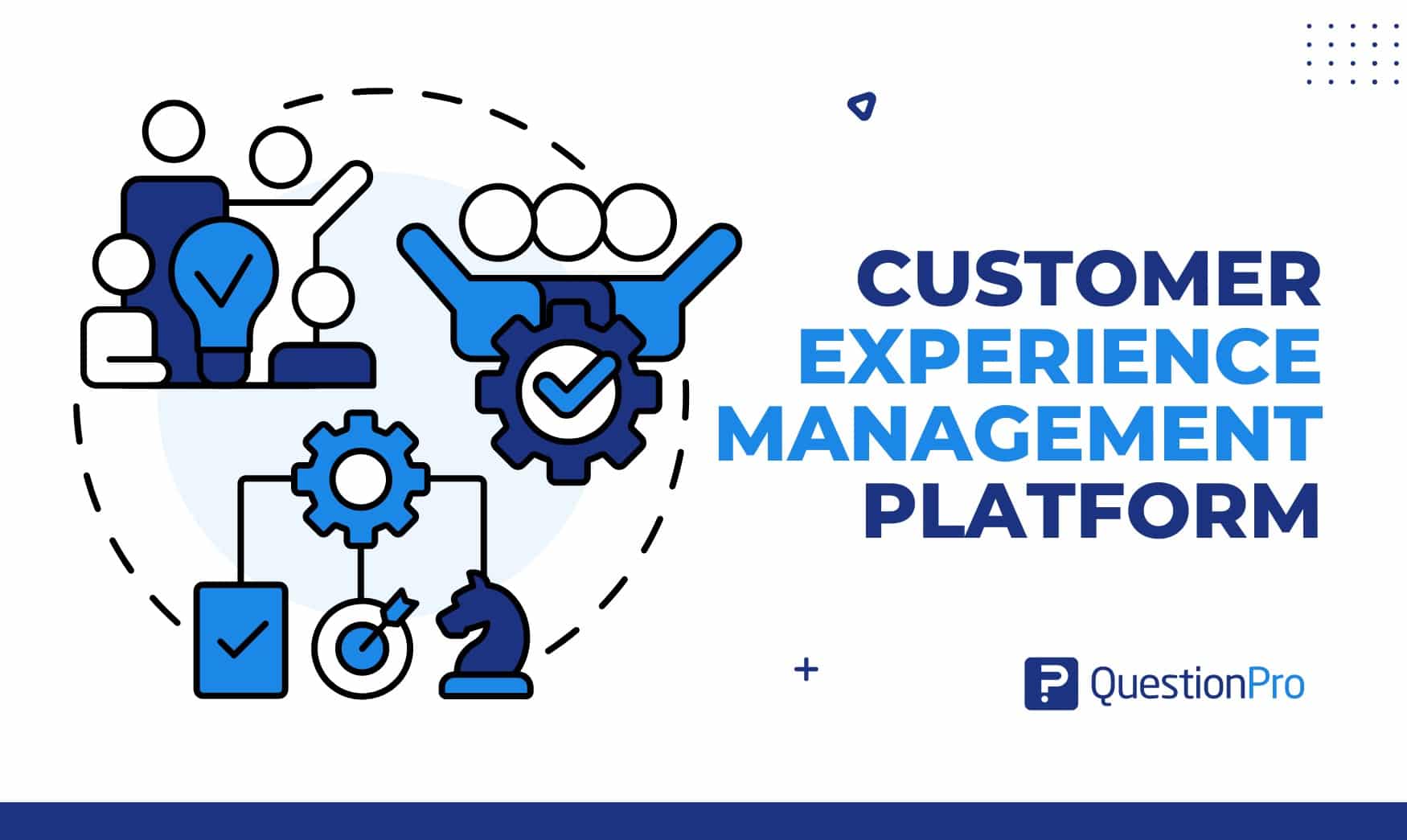
A customer experience management platform serves as the nerve center of a company’s CX efforts, offering a complete suite of tools and analytics to understand, measure, and enhance every customer journey touchpoint. From initial awareness to post-purchase support, CXM platforms empower organizations to deliver seamless, personalized experiences that resonate with their audience.
Organizations are turning to Customer Experience Management (CXM) platforms to effectively navigate this landscape as essential tools for understanding, analyzing, and optimizing every facet of the customer journeys.
In this dynamic era of heightened customer expectations and fierce competition, businesses that prioritize customer experience not only stay afloat but gain a distinct competitive advantage. A robust CXM platform equips enterprises with the insights and tools needed to exceed customer expectations, drive innovation, and foster sustainable growth in an ever-evolving marketplace.
What is Customer Experience Management?
Customer experience management (CXM) refers to the process of strategically managing and optimizing every interaction a customer has with a company throughout their journey. It encompasses understanding customers’ needs, preferences, and behaviors and designing and delivering personalized experiences that meet or exceed their expectations at every touchpoint.
Effective customer experience management fosters customer satisfaction, loyalty, and advocacy, leading to increased customer lifetime value, brand reputation, and business growth. It’s a holistic approach that requires alignment across all organizational departments to deliver seamless and consistent experiences that resonate with customers.
What is a Customer Experience Management Platform?
A customer experience management platform (CXM platform) is software that enables businesses to comprehensively manage and optimize every aspect of the entire customer journey. It provides tools for collecting, analyzing, and acting upon customer feedback and data from various touchpoints, allowing organizations to enhance customer satisfaction, loyalty, and retention.
CXM platforms typically include features such as:
- Data Aggregation.
- Analytics.
- Feedback Management.
- Customer Segmentation.
- Engagement Tools.
- Performance Monitoring.
- Actionable Insights.
Moreover, a customer experience management platform is a central hub for cross-functional collaboration within an organization. It facilitates customer communication and alignment between marketing, sales, customer service, and product development departments by providing a shared insight into customer needs and preferences.
Key features of a CX Management platform
A customer experience management platform is a centralized hub for collecting, analyzing, and operating on customer feedback and customer data to enhance the overall customer experience.
Key features of a CXM platform typically include:
- Data Collection: CXM platforms aggregate data from multiple sources, such as customer surveys, social media, customer interactions, and customer service interactions, to create a holistic view of the customer journey.
- Analytics: These platforms use advanced analytics techniques to interpret customer data, identify patterns and trends, and perform sentiment analysis to gather actionable insights into customer behavior and preferences.
- Feedback Management: CXM platforms facilitate the collection and management of customer feedback through various channels, including surveys, reviews, and social media mentions.
- Customer Segmentation: They allow businesses to segment their customer base based on various standards such as demographics, behavior, and preferences, enabling targeted marketing and personalized experiences.
- Engagement Tools: CXM platforms commonly feature a variety of communication tools spanning multiple channels, including email, SMS, chatbots, and social media. These tools enable businesses to deliver timely and pertinent messages, fostering customer engagement and interaction across diverse touchpoints.
- Performance Monitoring: These platforms enable businesses to track key performance metrics related to customer experience platform, such as Net Promoter Score (NPS), customer satisfaction (CSAT), and customer effort score (CES).
- Actionable Insights: CXM platforms provide actionable insights and recommendations to help businesses improve customer satisfaction, loyalty, and retention.
By leveraging a CXM platform, businesses can better understand customers’ needs and preferences, identify areas for progress, and implement strategies to deliver exceptional customer experiences across all touchpoints.
Best Practices for Customer Experience Management
Implementing effective customer experience management (CEM) involves consistently adopting various best practices to deliver exceptional experiences across all touchpoints. Here are some essential best practices for CEM:
1. Understand Your Customers
- Conduct thorough research to understand customers’ needs, preferences, and behaviors.
- Utilize surveys, interviews, and feedback mechanisms to gather valuable customer insights.
- Develop detailed customer personas better to understand different segments of your audience and tailor experiences accordingly.
2. Map the Customer Journey
- Visualize and analyze the whole customer journey from awareness to post-purchase interactions.
- Identify essential touchpoints and moments of truth where customer perceptions and decisions are formed.
- Use journey mapping techniques to uncover customer pain points and improvement opportunities throughout the customer lifecycle.
3. Personalize Interactions
- Leverage customer data to provide a personalized experience that resonates with individual preferences and behavior.
- Implement dynamic content, product recommendations, and personalized messaging to enhance relevance and engagement.
- Utilize automation and AI-driven technologies to deliver personalized experiences at scale across various channels.
4. Leverage Technology
- Invest in advanced technology solutions such as Customer Relationship Management (CRM) systems, data analytics tools, and customer experience management platforms.
- Utilize automation and AI-driven technologies to streamline processes, automate routine tasks, and personalize interactions.
- Implement omnichannel support capabilities to provide consistent and seamless experiences across all customer touchpoints.
5. Prioritize Omnichannel Support
- Present multiple channels for customer support, including chat, phone, email, social media, and in-person interactions.
- Ensure consistency and continuity of support experiences across all channels, enabling customers to seamlessly transition between channels without losing context.
- Provide customer self-service options and knowledge resources to empower customers to find solutions independently whenever possible.
6. Collect Customer Feedback
- Solicit customer feedback through surveys, reviews, and feedback forms.
- Analyzeing customer feedback to identify trends, pain points, and areas for improvement.
- Actively respond to customer feedback and take corrective actions to address issues and enhance the overall customer experience.
7. Measure Key Metrics
- Track key performance indicators (KPIs) such as Net Promoter Score (NPS), Customer Satisfaction Score (CSAT), and Customer Effort Score (CES) to gauge the effectiveness of your CXM efforts.
- Utilize advanced analytics tools to gain deeper insights into customer behavior, sentiment, and preferences.
- Establish benchmarks and targets for key metrics and continuously monitor progress towards achieving them.
8. Encourage Customer Advocacy
- Cultivate loyal customers who advocate for your brand by exceeding their expectations and delivering memorable experiences.
- Incentivize referrals, positive reviews, and social media mentions to amplify positive word-of-mouth and attract new customers.
- Develop loyalty programs and exclusive offers to reward and recognize customers for their continued support and advocacy.
By implementing these comprehensive best practices, businesses can create a customer-centric culture and deliver exceptional experiences that drive customer satisfaction, loyalty, and advocacy, ultimately leading to sustainable growth and success.
10 Best Customer Experience Management Software
In the competitive business world, exceptional customer experiences are essential. These customer experience management platforms empower organizations to collect feedback, analyze data, and enhance customer satisfaction effectively.
1. QuestionPro CX
QuestionPro CX offers robust customer experience management solutions, empowering businesses to gather feedback, analyze data, and take actionable steps to enhance customer satisfaction and loyalty. With features like survey creation, sentiment analysis, and personalized reporting, QuestionPro CX enables organizations to effectively understand and improve the customer journey.
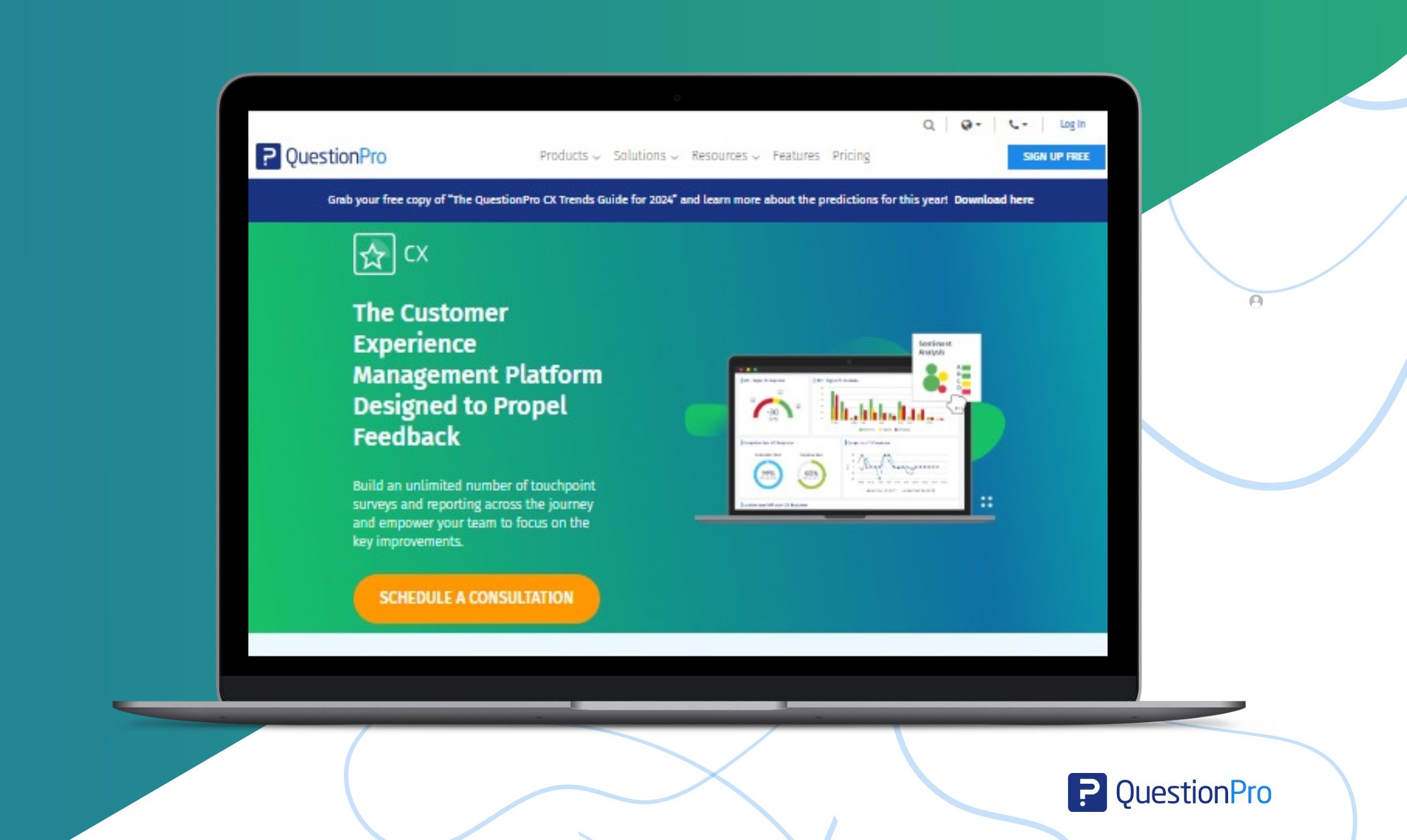
Features:
- Robust survey and feedback management capabilities.
- Advanced analytics for interpreting customer data and feedback.
- Customizable dashboards and reporting tools.
- Integration with various CRM and business systems.
- Automated workflows for managing customer interactions.
- Multichannel support for gathering feedback through surveys, email, and mobile.
Limitation:
- Advanced features require more effort and resources to be effectively used.
Pricing: The most popular plans start at $99 monthly, and Team addition starts at $83. Pricing tiers are available for businesses of all sizes, and custom pricing options are available for enterprises with specific needs.
2. HubSpot Operations Hub
HubSpot Operations Hub is a comprehensive platform that helps businesses streamline operations and enhance customer experiences. It enables companies to deliver personalized and efficient services at every touchpoint by integrating customer data, automating processes, and providing insights into customer interactions.
Features:
- Unified customer data platform for centralizing customer information.
- Advanced segmentation and targeting capabilities.
- Automation tools for orchestrating personalized customer experiences.
- Integration with HubSpot’s suite of marketing, sales, and service tools.
- Workflow automation for streamlining internal processes.
- Scalable platforms are suitable for businesses of all sizes.
Limitation:
- Complex setup and configuration.
- Advanced features in higher-tier plans.
- Integration may need extra development.
Pricing: Operations Hub Professional plan starts at $720 per month.
3. Medallia
Medallia is a leading customer experience management solution that empowers businesses to capture, analyze, and act upon customer feedback in real-time. With advanced AI-driven analytics and engagement tools, Medallia enables organizations to drive customer loyalty, increase customer retention, and boost revenue through exceptional experiences.

Features:
- Comprehensive feedback management across multiple touchpoints.
- AI-powered analytics for deep insights into customer sentiment and behavior.
- Actionable insights and recommendations for improving customer experiences.
- Integration with CRM and other business systems for holistic data analysis.
- Customizable dashboards and reporting tools for real-time visibility.
- Voice of the Customer (VoC) analytics to capture customer feedback at scale.
Limitation:
- Higher cost.
- Steeper learning curve.
- Limited customization options.
Pricing: pricing is available upon request.
4. Salesforce
Salesforce is a renowned CRM platform that offers robust customer experience management capabilities. With customer data management, personalized marketing, and omnichannel engagement features, Salesforce helps businesses build lasting relationships with their customers and drive business growth.
Features:
- Unified CRM platform for managing customer interactions and relationships.
- Customer journey mapping and automation capabilities.
- AI-driven insights for predicting customer behavior and preferences.
- Integration with third-party apps and data sources.
- Omnichannel support is needed to deliver consistent experiences across channels.
Limitation:
- Complex implementation.
- Higher cost for add-ons.
- Integration may need development.
Pricing: Starter Suite plan starts at $25 per month.
5. Zendesk
Zendesk offers a versatile customer service software suite for efficiently managing and tracking customer interactions across different channels. From ticketing and live chat to self-service options, Zendesk enables businesses to deliver seamless support experiences and build strong customer relationships.

Features:
- Omnichannel support for managing customer inquiries across various channels.
- A ticketing system is used to track and resolve issues efficiently.
- Knowledge base and a self-service portal for empowering customers.
- Automation tools for automating repetitive tasks and workflows.
- Reporting and analytics for monitoring key support metrics.
Limitation:
- Limited analytics.
- Cost may need to scale better.
- Customization options are limited.
Pricing: Suite Team plan starts at $55 per month.
6. Birdeye
Birdeye is a popular customer experience software that allows businesses to handle and improve their online reputation, customer interactions, and overall brand perception. With features like review monitoring, customer surveys, and social media management, Birdeye empowers organizations to drive positive customer experiences and boost their online presence.
Features:
- Reputation management tools for monitoring and managing online reviews.
- Customer sentiment analysis for understanding brand perception.
- Automated review solicitation and response workflows.
- Integration with popular review sites and social media platforms.
- Insights and analytics for tracking review performance and trends.
- Multichannel communication tools for engaging with customers.
Limitation:
- It needs a more intuitive interface.
- Limited advanced features.
- Integration options are restricted.
Pricing: Standard Plan: $299 per month for listings.
7. Qualtrics CustomerXM
Qualtrics CustomerXM is a powerful experience management platform that allows companies to collect, analyze, and act on customer feedback at scale. With advanced survey capabilities, predictive analytics, and personalized insights, Qualtrics CustomerXM helps organizations drive meaningful improvements in customer satisfaction and loyalty.
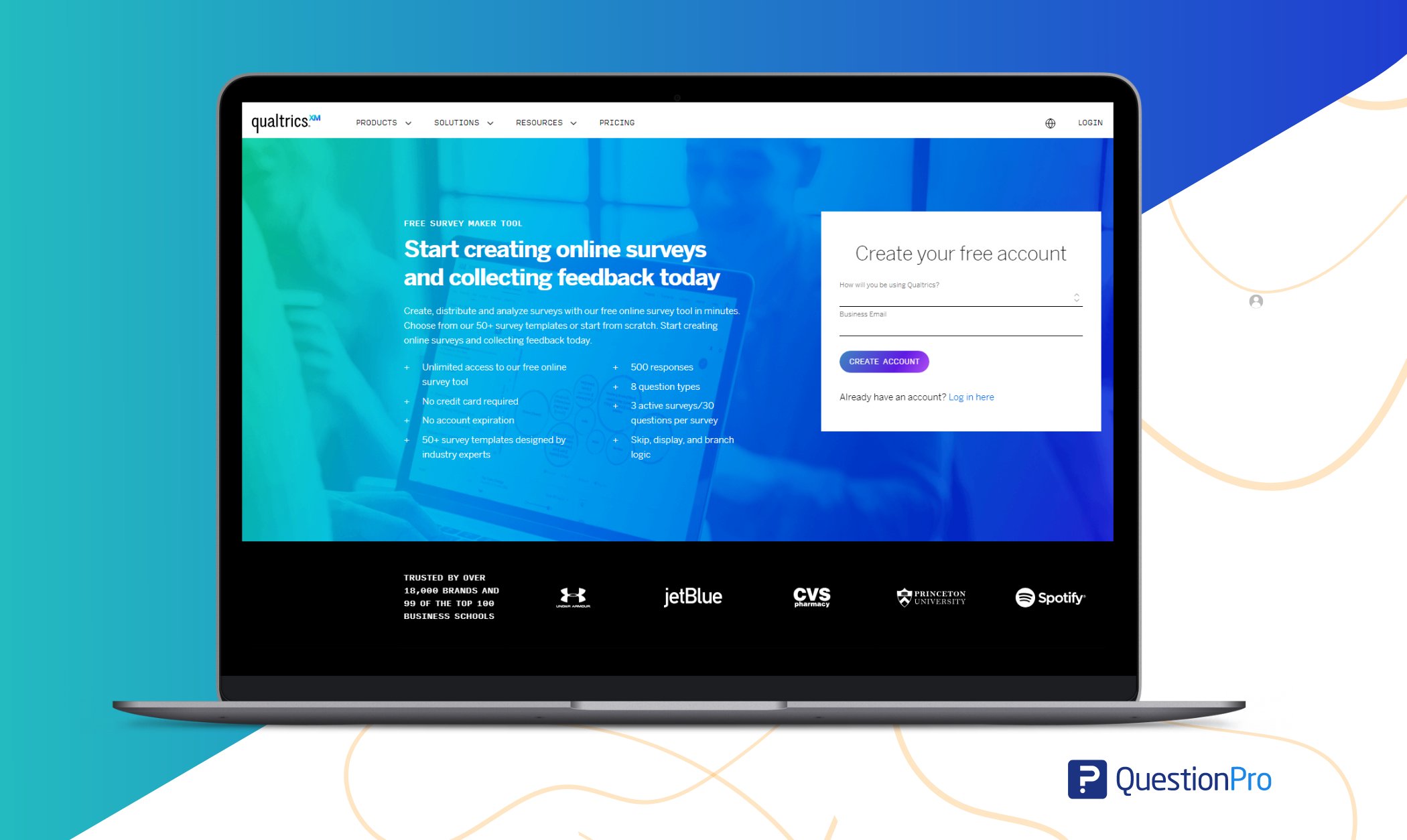
Features:
- Comprehensive customer feedback collection across multiple channels.
- Advanced analytics and sentiment analysis for actionable insights.
- Journey mapping and optimization tools for enhancing customer experiences.
- Real-time monitoring and alerts for immediate action on customer issues.
- Personalized surveys and feedback forms for tailored customer interactions.
Limitation:
- Higher cost.
- Expertise is required for setup.
- Limited integration capabilities.
Pricing: pricing is available upon request.
8. Freshdesk
Freshdesk is a cloud-based customer support software solution and knowledge management software that empowers businesses to provide excellent customer service across many channels. With features like ticket management, customer self-service options, and automation tools, Freshdesk helps organizations streamline their support operations and deliver seamless customer experiences.
Features:
- Multichannel support for managing customer inquiries via email, phone, chat, and social media.
- Ticket management system for organizing and prioritizing customer issues.
- Knowledge base and a self-service portal for empowering customers to find solutions.
- Automation tools for routing tickets and streamlining support processes.
- Reporting and analytics for tracking support performance and identifying trends.
Limitation:
- Limited scalability.
- Advanced features in higher plans.
- Integration options may be limited.
Pricing: pricing is available upon request.
9. Zoho Desk
Zoho Desk is a customer service platform offering various features for managing customer support interactions. From ticketing and knowledge base management to multichannel support and performance analytics, Zoho Desk empowers businesses to deliver outstanding customer service and satisfaction.
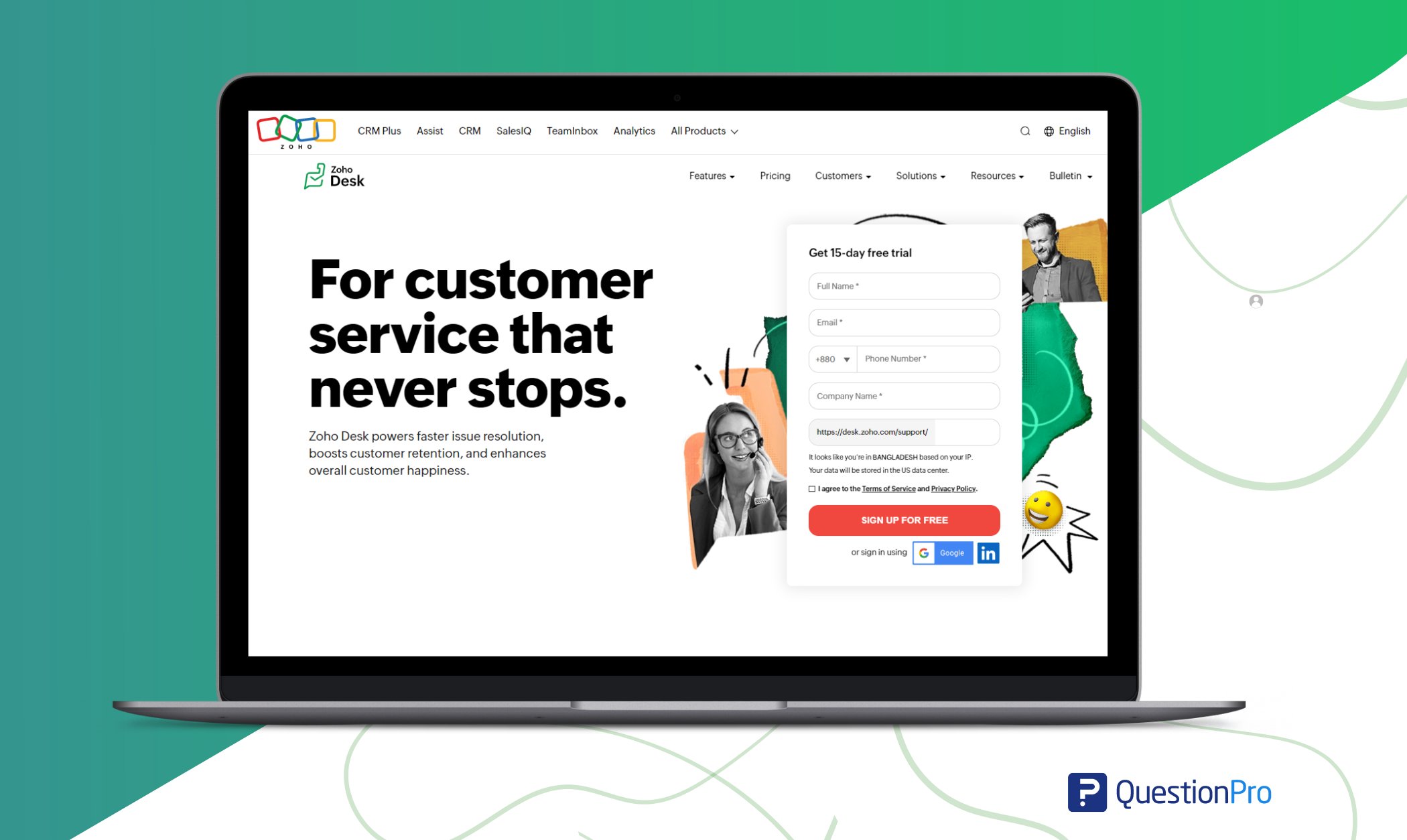
Features:
- Unified help desk software for managing customer support inquiries.
- Ticket management system with customizable workflows and automation.
- Knowledge base and a self-service portal for customer empowerment.
- Multichannel support for handling inquiries via email, chat, phone, and social media.
- Insights and analytics for tracking key support metrics and performance.
- Integration with Zoho CRM and other business applications for unified data management.
Limitation:
- Few native integrations.
- Limited analytics.
- Customization options are constrained.
Pricing: Standard plan starts at $14 per month.
10. Oracle Service
Oracle Service is a comprehensive customer service platform that provides multiple tools for managing customer interactions, from contact center solutions to field service management. With features like case management, knowledge management, and AI-driven insights, Oracle Service enables businesses to deliver personalized and efficient customer experiences across all touchpoints.
Features:
- Omnichannel support for delivering consistent customer experiences across channels.
- AI-driven chatbots for automating customer interactions and support.
- Knowledge base and a self-service portal for customer empowerment.
- Analytics and reporting are used to monitor service performance and trends.
- Integration with Oracle CRM and other business systems for seamless operations.
Limitation:
- Higher cost.
- Complex setup and configuration.
- Limited customization options.
Pricing: pricing is available upon request.
Prioritizing customer experience is vital for success in today’s market. The highlighted software solutions offer invaluable tools to help businesses drive customer loyalty and boost revenue through exceptional experiences. By investing in these platforms, organizations can exceed customer engagement, expectations and drive sustainable growth.
Curious about how to gain deeper customer insights? QuestionPro’s latest blog delves into its Customer Insight Platform, offering valuable tips and strategies!
Importance of Customer Experience Management Platform
The importance of a customer experience management (CEM) Platform lies in its ability to centralize and optimize the management of every aspect of the customer journeys. Here are some key reasons why a CEM platform is crucial for businesses:
1. Holistic View of the Customer Journey
CEM platforms provide a comprehensive view of the customer journey across all touchpoints and channels, enabling businesses to understand and analyze the entire customer experience.
2. Data Centralization and Analysis
These platforms aggregate customer data from various sources, such as surveys, feedback, and interactions, allowing businesses to gain valuable insights and identify trends to inform decision-making.
3. Personalized Experiences
By leveraging advanced analytics and segmentation capabilities, CEM platforms enable businesses to deliver customized experiences tailored to individual customer preferences, driving customer engagement and loyalty.
4. Efficient Feedback Management
CEM platforms streamline collecting, managing, and acting upon customer feedback, enabling businesses to address issues promptly and proactively to improve customer experience automation.
5. Scalability and Flexibility
These platforms are scalable and adaptable to the evolving needs of businesses, allowing for seamless integration with other systems and the ability to accommodate growth and changes in customer expectations.
6. Competitive Advantage
Businesses that prioritize customer experience gain a competitive edge in the marketplace, and a robust CEM platform enables them to stay ahead of the competition by consistently delivering superior experiences that drive customer loyalty and advocacy.
A customer experience management platform is essential for businesses looking to create significant connections with their customers, drive loyalty, and foster sustainable growth in today’s competitive landscape.
Are you curious about Digital Experience Platforms? QuestionPro’s recent article breaks it all down for you!
Why QuestionPro CX is the Best CXM Platform
While it’s subjective to claim any platform as “the best” without considering individual business needs and preferences, QuestionPro CX stands out in the positive customer experience management (CXM) landscape for several reasons:
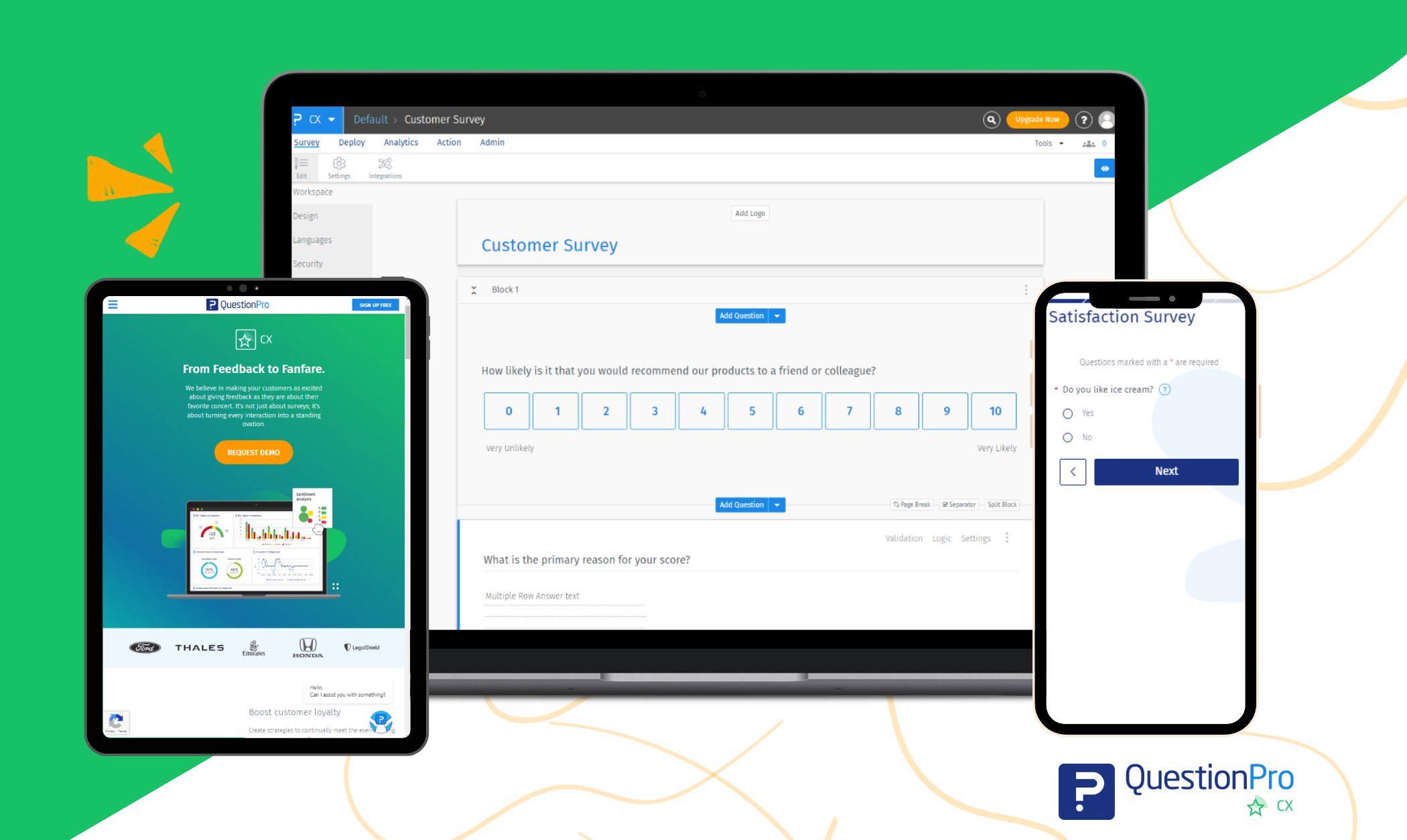
01. Comprehensive Features
QuestionPro CX boasts a robust suite of features essential for effective CXM. The platform presents a comprehensive solution to diverse business needs, from survey and feedback management to advanced analytics, customer journey mapping, and personalized engagement tools.
02. User-Friendly Interface
One of QuestionPro CX’s standout features is its intuitive and user-friendly interface. Whether you’re a CX expert or new to the field, the platform’s interface makes it easy to navigate, create customer feedback surveys, analyze data, and take actionable steps to improve the customer experience.
03. Customization Options
Recognizing that every business is unique, QuestionPro CX provides extensive customization options. Companies can tailor surveys, reports, and dashboards to align with their specific branding requirements, ensuring a seamless customer experience across all touchpoints.
04. Scalability
Whether you’re a small startup or a large enterprise, QuestionPro CX scales to meet the needs of businesses of all sizes. With flexible pricing plans and scalable solutions, companies can start small and expand as their CXM needs to grow without compromising functionality or performance.
05. Integration Capabilities
QuestionPro CX integrates with other business systems and tools, including CRM systems, email marketing platforms, and helpdesk customer experience software. This integration capability permits businesses to centralize their CX efforts, streamline operations, and derive maximum value from their existing technology stack.
06. Actionable Insights
- Beyond Data Collection: The platform offers more than data collection and analysis; it delivers actionable insights and recommendations.
- Advanced Analytics: It utilizes advanced and predictive analytics to analyze customer feedback and data.
- Valuable Insights: QuestionPro CX helps businesses uncover critical insights from customer feedback.
- Informed Decision-Making: These insights empower businesses to make informed decisions.
- Proactive Customer Experience Enhancement: The platform enables businesses to enhance customer experience proactively.
07. Customer Support
QuestionPro CX is backed by excellent customer support and assistance. Whether you need help with onboarding, training, or ongoing support, the platform’s dedicated teams are readily available to provide guidance and ensure your success in leveraging the platform to drive customer satisfaction and business growth.
08. Proven Track Record
With a proper track record of supporting businesses across industries to elevate their customer experience, QuestionPro CX has established itself as a trusted partner in the CXM space. Its success stories and testimonials speak volumes about its effectiveness in driving:
- customer satisfaction.
- customer loyalty.
- customer advocacy.
QuestionPro CX is a top-tier CXM platform that offers comprehensive features, a user-friendly interface, customization, scalability, integration capabilities, actionable insights, excellent support, and a proven track record. It’s the ideal choice for businesses that prioritize customer experience and seek meaningful growth.
Conclusion
A Customer Experience Management (CEM) platform is a cornerstone for businesses that deliver exceptional customer experiences. By leveraging comprehensive features, advanced analytics, and seamless integration capabilities, CEM platforms empower businesses to understand, analyze, and optimize every element of the customer journeys.
With a focus on personalization, efficiency, and continuous improvement, these platforms enable businesses to foster customer communications and loyalty, drive growth, and maintain a competitive edge in today’s dynamic market landscape. Embracing a customer-centric approach with the support of a robust CEM platform is essential for businesses aiming to thrive in an era where customer experience reigns supreme.
A Customer Experience Management (CEM) platform encourages collaboration across departments like marketing, sales, customer service, and product development, fostering alignment and synergy. This enables teams to unite towards the shared objective of providing exceptional customer experiences. Such collaboration boosts operational efficiency and ensures consistency in delivering the brand promise across all customer touchpoints.
A Customer Experience Management platform (CXM platform) is software that enables businesses to comprehensively manage and optimize every aspect of the entire customer journey.
Operational CRM focuses on customer experience by streamlining interactions and improving service efficiency.
Customer experience management (CEM) and CRM aim to enhance customer relationships.
CEM focuses on delivering positive experiences across all touchpoints, while CRM manages interactions and data to improve customer service and retention.
Both seek to understand and meet customer needs for better satisfaction and loyalty.




